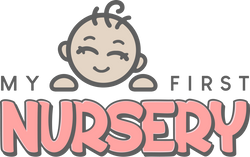
What Does a Baby Cost Per Month? A Practical Guide for New and Expecting Parents
What Does a Baby Cost Per Month? A Practical Guide for New and Expecting Parents
For first-time parents or those considering starting a family, the joy of welcoming a baby is often accompanied by a significant question: "How much will it cost?" Whether you're already expecting or just in the planning stages, it's essential to understand both the initial and ongoing costs of raising a baby.
Here’s a breakdown of the costs associated with a baby in its first year, followed by some practical tips to help manage expenses.
The First Month: Big Purchases and Essentials
In the first month, the costs can feel overwhelming. You’re setting up your nursery, buying essentials, and preparing for life with a new-born. On average, you’re likely to spend:
• Nappies: £23.52
• Baby clothes: £243 (Babies grow fast, so expect regular updates to their wardrobe!)
• Feeding equipment: £53.51
• Toys and furniture: £183.51
Altogether, that’s over £500 in the first month alone. Many parents aren’t prepared for these initial expenses, but by planning ahead, you can better manage them.
Shop Clair de Lune Oak Cot Bed >
Baby Essentials: The Big Purchases
Beyond day-to-day costs, there are several one-time purchases for your baby’s first year. Here’s a quick rundown of the average costs:
• Cot: £70 to £700
• Pram: £100 to over £2,000 (on average £480)
• Car seat: £119 (some models go up to £400)
• Moses basket: £125
• Baby monitor: Starting at £30, with an average of £49.61
When buying these items, it’s essential to balance cost with quality. You don’t need to splurge on the most expensive products—many budget-friendly options meet the same safety standards as high-end brands. For example, when choosing a car seat, check for an EU-approved label (either "R129" for height-based seats or "ECE R44" for weight-based seats).
The Cost of the First Year
While you may spend around £500 in the first month, the expenses don’t stop there. Over the next eleven months, expect an average monthly spend of £95 on essentials like nappies, formula, and clothing. This adds up to roughly £1,545 for the year.
However, studies show that the real cost of raising a baby in the first year is closer to £11,498. That’s because there are many additional expenses you may not have factored in, such as medical costs, toys, and unexpected extras. With maternity leave often leading to a reduction in income, these costs can put pressure on your budget.
Childcare: One of the Biggest Expenses
Childcare is one of the most significant ongoing costs for parents. In Great Britain, nursery fees for a child under two can be steep:
• Part-time nursery: £148 per week, or £7,134 per year
• Full-time nursery: Up to £300 per week, or over £15,000 per year
Costs vary based on location and the type of care, whether you choose a childminder or a day nursery. For children over three, you can access free early childcare, with up to 30 hours of free care per week for qualifying families.
Tips to Save on Baby Costs
Raising a baby doesn’t have to break the bank. Here are some money-saving strategies to help:
1. Buy Second-Hand
Babies outgrow things fast, so second-hand baby gear can be a fantastic way to save. Look for pre-loved cots, prams, and clothes on Facebook Marketplace, local selling sites, or auction platforms like eBay.
2. Shop Sales
Take advantage of sales and baby events at supermarkets, pharmacies, and baby stores. Keep an eye out for discounted toiletries, nappies, and baby formula, which can quickly add up if you’re buying them at full price.
3. Use Price Comparison Sites
Always compare prices before making a big purchase. Sites like Idealo or Google Shopping can help you find the best deal. For baby formula, switching to a cheaper brand could save over £500 in the first year alone.
4. Gifting and Vouchers
Encourage friends and family to gift practical items like nappies or vouchers for larger purchases. It’s easy for loved ones to buy cute outfits, but these often only fit for a short time—practical gifts go a long way.
5. Resell Baby Items
As your baby grows, you can sell items you no longer need, like toys or clothes, on platforms like Vinted or at car boot sales. Keeping original packaging can help boost resale value, and you’ll reclaim some much-needed space!

Plan Ahead and Save Smart
The costs of raising a baby can be daunting, especially during the first year, but with smart budgeting and savvy shopping, you can manage these expenses. Whether it’s buying second-hand, shopping sales, or asking friends and family for practical gifts, there are plenty of ways to reduce the financial strain.
By preparing ahead and making conscious choices, you can focus more on enjoying those precious moments with your little one and less on worrying about the price tag. Keep an eye on our blog at My First Nursery for more money-saving tips and expert advice on all things baby-related.



